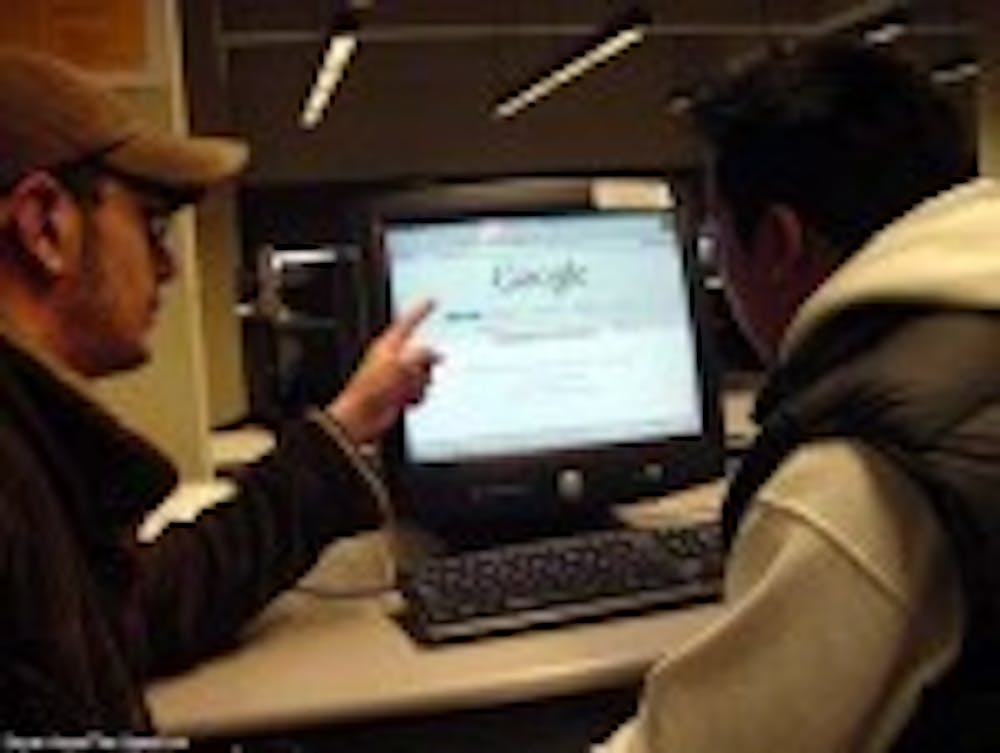After 10 years of public familiarity with search engines, the popular roles are being expanded to include a series of new functions that may have widespread appeal.
An emerging trend is the act of self-Googling, or typing one's name into a search engine, usually the popular search engine Google, and using the results of the search as a form of cyber mirror.
Daniel Ohanlon, a junior urban planning and public policy major, said a good way to pass the time is to roll the Google dice and see what it produces.
"I search my name in Google. Sometimes I find something about me. I saw my credit card information, like my address there. So it is good to do that once in a while," said Ohanlon. "I Google my parents and my friends. Sometimes it is interesting to see what you can find on the Internet. You realize your friends have Web sites and they post those pictures."
Ohanlon said he enjoys Googling himself and other people because of the excitement of seeing the wacky results that pop up.
Alexander Halavais, an assistant professor of communication in the School of Informatics, conducted a study on Googling that produced some interesting findings.
Halavais said people want to know how they are presented online. We can find out by searching Google.
"Self-Googling can be called "ego-surfing" as well. You are not trying to find out things about yourself, but how others see you," said Halavais.
Halavais said there are two situations where Google can be particularly useful.
"When people date, they Google their date, and find out how their date is," he said.
He said it is easy for people to mask themselves in public, but in private or on Google, the skeletons can come out of the closet.
"If you are going out for a date, you can Google his or her name. You can try to understand the date better and find out if the date is hiding something or has other faces, " Halavais said.
According to Halavais, employers can also use Google to investigate new hires. Instead of paying an agency, the employer can run their own background check by Googling someone's name.
"You send a resume to the employer and you put good stuff in the resume. But if the employer Googles you, they can find out things that you didn't put on the resume as well. Sometimes it is good, sometimes it is bad."
Unless students are applying for full-time work though, Halavais said they can rest easy.
"Not all employers Google search. It depends on the job. If you are working for retail, they are not going to do this. But if you are hiring for a professional job or high position, it is common to do a search first."
Halavais warns that there are a few things to pay attention to when attempting to self-Google, or Google others.
"Make sure you have the right names. There are so many people (who have) the same name."
Halavais said sometimes people search the name of a person, and get results that prove to be another person's information.
While it might be entertaining to find interesting things about acquaintances or prospective dates through a Google expedition, Halavais admonishes students to be aware that any information posted about them is just as readily available. Halavais warns students to proceed with caution when it comes information they allow on the Internet.
"You are presenting yourself to worldwide audiences, the information is around forever. If you put something private or personal online, it is a good idea not to use your real name. Otherwise, people can find out," said Halavais.





